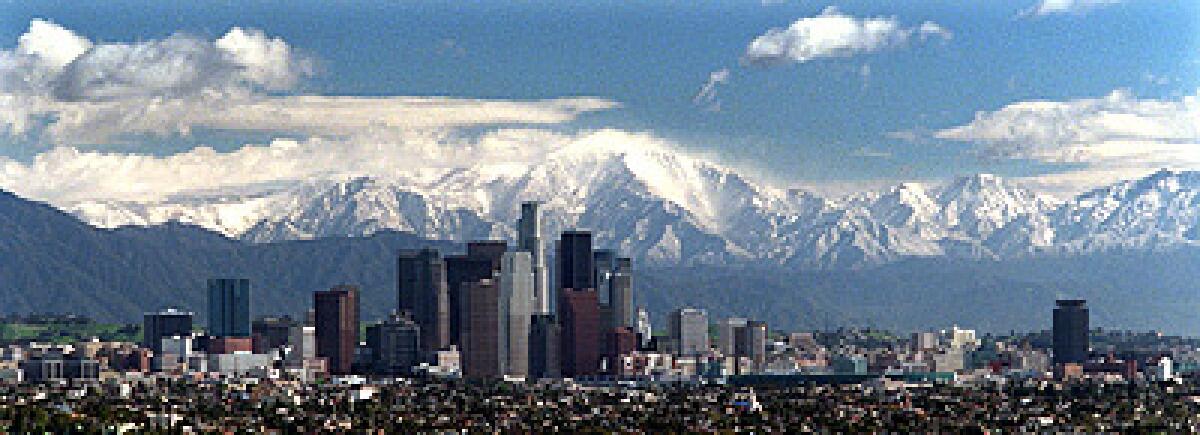L.A.’s wild fringe

- Share via
As a girl growing up in La Puente, Hilda L. Solis would cram into her father’s Ford pickup with her six brothers and sisters and drive to the San Gabriel Mountains to escape summer heat. She spent many Saturdays splashing in the east fork of the San Gabriel River. Her father picked watercress and talked of how, in the mountains of his native Veracruz, Mexico, it was collected as folk medicine to aid digestion.
Today, Solis (D-El Monte) represents the San Gabriel Valley and parts of East Los Angeles in the House of Representatives. She is a sponsor of the first major California wilderness protection bill in a decade, and much of the turf she hopes to protect is in the mountains that frame Los Angeles. Solis represents a new player on the conservation landscape.
“A lot of the families that I represent don’t have the luxury” to travel to Yosemite and the Grand Canyon, Solis says. The San Gabriel Mountains are “for some of my constituents their only haven, their only getaway.”
In addition to the usual roster of conservation groups lobbying for the wilderness bill, the National Hispanic Environmental Council is working to build support for the legislation among Latino organizations and communities across the state. NHEC president and founder Roger Rivera says Latino environmental organizations nationwide are expanding their focus from protecting minority and low-income communities from pollution hazards to ensuring their access to open space, including wilderness.
UC Irvine political scientist Lisa Garcia Bedolla says the growing number of Latino voices advocating for wilderness is evidence that mainstream conservation groups have tailored their conservation pitch.
“There’s a perception that poor people and people of color don’t care about the environment,” said Garcia Bedolla, “but that’s because it’s been framed as preserving the woods out in nowhere” rather than emphasizing air and water quality benefits and recreational opportunities close to home.
Dissenting crosscurrents threaten the nascent movement. Anti-immigration forces are attempting to take control of the Sierra Club board of directors. If they prevail in the club’s March election, America’s oldest environmental group and Latino leaders may be on a collision course.
Traditional opponents of additional wilderness preservation, including oil and gas companies, off-road vehicle enthusiasts and timber companies, hold sway in Congress, where Solis’ bill faces an uphill fight. Many small communities in the Sierra Nevada, too, oppose her bill.
“A tiny minority of people use wilderness, but there is a growing demand for outdoor recreation. This country is all about tolerance and diversity, but the wilderness advocates are promoting a lack of tolerance. We don’t think setting aside vast landscapes for a tiny minority of the recreating public is a wise thing to do,” said Bill Dart, executive director of the Blueribbon Coalition, which is made up largely of off-road vehicle makers, dealers and riders.
The Bush administration settled a lawsuit last year by removing wilderness protection from 2.6 million acres of federal land in southern Utah. Across the West, the administration is pushing to open more public land to oil and natural gas exploration.
Nonetheless, supporters of the California Wild Heritage Act, which would protect 2.5 million acres, hope candidates may seize wilderness protection as a way to spruce up their green credentials during an election year.
Solis is sponsoring the Southern California portion of the bill, which would create or expand 44 wilderness areas and protect segments of 14 rivers including Deep Creek, a wild trout stream and golden eagle nesting site in the San Bernardino Mountains, and the Castaic Mountains proposed wilderness area, the largest roadless area left in the Angeles National Forest. Tim Allyn of the Sierra Club said: “Wilderness is the core of the forest. For the forest to continue to be healthy we need more big spaces where there’s minimal impact, where natural influences dominate these areas.”






